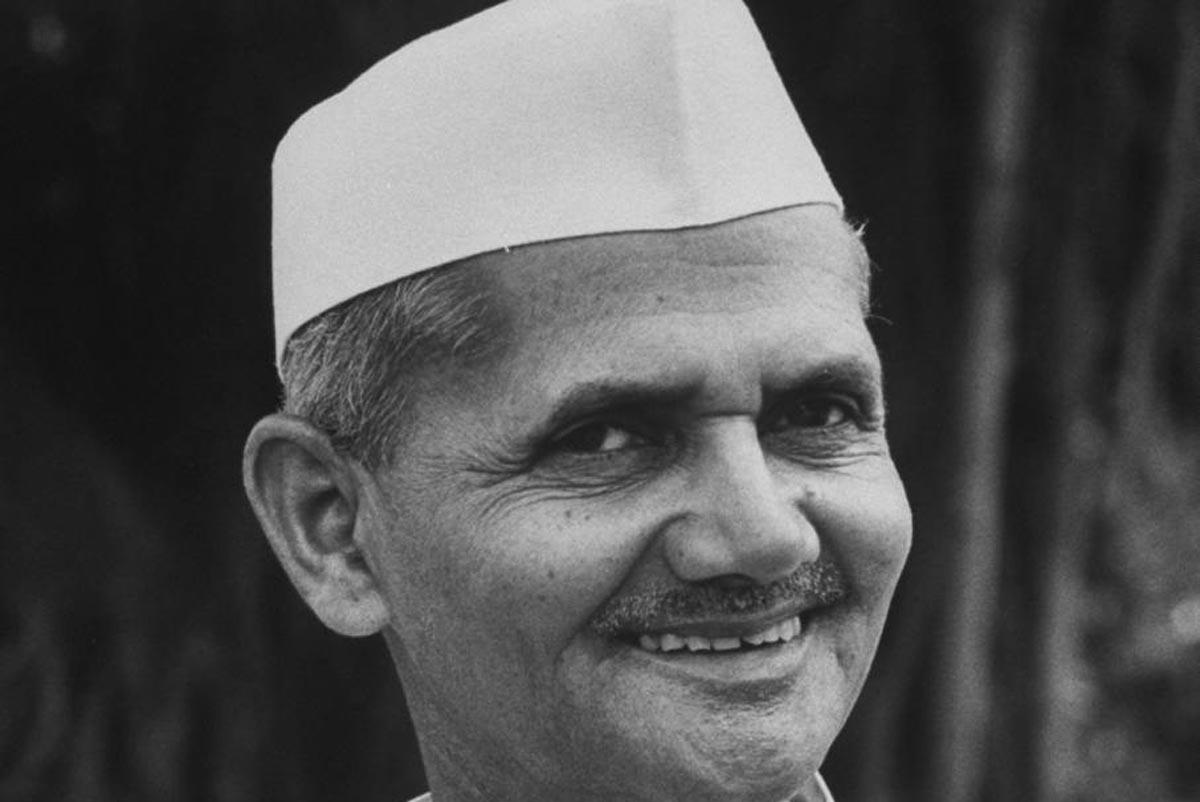Live
- Malladi Vishnu complains to EC on Naidu, Ayyanna & Pawan
- MyVoice: Views of our readers 19th April 2024
- Peddireddi touched my feet for DCC post, recalls Kiran
- All politicos must commit to free press
- iPhone 17 Plus Rumors: Potential Smaller Screen Size for the 2025 iPhone
- Risk of Middle East escalation
- 50 families quit YSRCP, join TDP
- Nara Bhuvaneshwari to File Nomination Papers on Behalf of TDP Chief Chandrababu in Kuppam
- Tamil Nadu BJP Chief Announces End Of Dravidian Politics, Foresees BJP Surge
- YS Jagan's Memanta Siddham Bus Yatra begins in Rajapuram, to enter Kakinada by evening
Just In

Over 50 years after he resigned from the government, Lal Bahadur Shastri’s action remains the benchmark for India’s political class. It has rarely been matched, leave alone surpassed. Before Shastri, V V Giri and T T Krishnamachari had also resigned after they were unable to defend serious lapses under their call.
Over 50 years after he resigned from the government, Lal Bahadur Shastri’s action remains the benchmark for India’s political class. It has rarely been matched, leave alone surpassed. Before Shastri, V V Giri and T T Krishnamachari had also resigned after they were unable to defend serious lapses under their call.
Moral grounds apart, action was guided by their desire not to embarrass the government of which they were part. Debates in Parliament helped clear the issues and left little scope for the Minister to resign and the Prime Minister to accept, howsoever useful or powerful the Minister may have been.
We are talking in another century, but is it another country or another Parliament? Have standards of morality and of probity in public life changed so radically? Why are Ministers and Chief Ministers pushed out by a court order, public outcry or party’s unwillingness to shoulder their weight? Agreed, giving up office is difficult – it is human. But that was also the case in the past.
So, what has changed? As the Sushma Swaraj-Vasundhara Raje-Lalit Modi controversy escalates by the day and PM Narendra Modi’s silence on it becomes deafening, voices of counsel, obviously unsolicited, are forthcoming. Directly or otherwise, they all question the morality of a Union Minister and a powerful Chief Minister staying on in office after making some thin defence, mostly on the social media, and then brazening it out
.
They are being shielded by the government as a whole and their party concerned. That Swaraj remains on one foreign tour after another as part of her official duties and that Raje, who came to the national capital, returned home without being summoned by the PM and the party chief indicates complete complicity and a desire to stay together, holding hands, come what may.
However, this is only encouraging voices of dissent. Veterans like Yashwant Sinha have been taking potshots, so have party lawmakers. They question why the government should have helped Lalit, a man wanted by law, living in self-exile and in luxury, and taking potshots at everybody. Whatever the reasons Swaraj and Raje may have had in helping him have been demolished by Lalit’s all-out war on the social media. The government, PM onwards, is left red-faced.
But silence is not golden. Wise counsel, unsolicited again, is coming from former Deputy PM Lal Krishna Advani. His remarks on Emergency may have been directed at the Congress, and not Modi or his party colleagues. But when he cites his own action of having resigned in 1996 when implicated in the hawala racket, and that he had stayed out of parliament till his name was cleared, is a direct indication what he would like his party colleagues holding key offices who have come under a cloud should do.
Ignoring this may not help the government, and criticism will mount as Parliament’s Monsoon Session nears. Will the PM who won his mandate on anti-graft and pro-governance platform act before that?

© 2024 Hyderabad Media House Limited/The Hans India. All rights reserved. Powered by hocalwire.com







